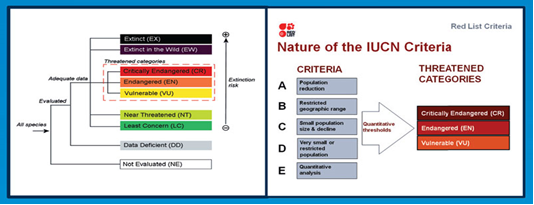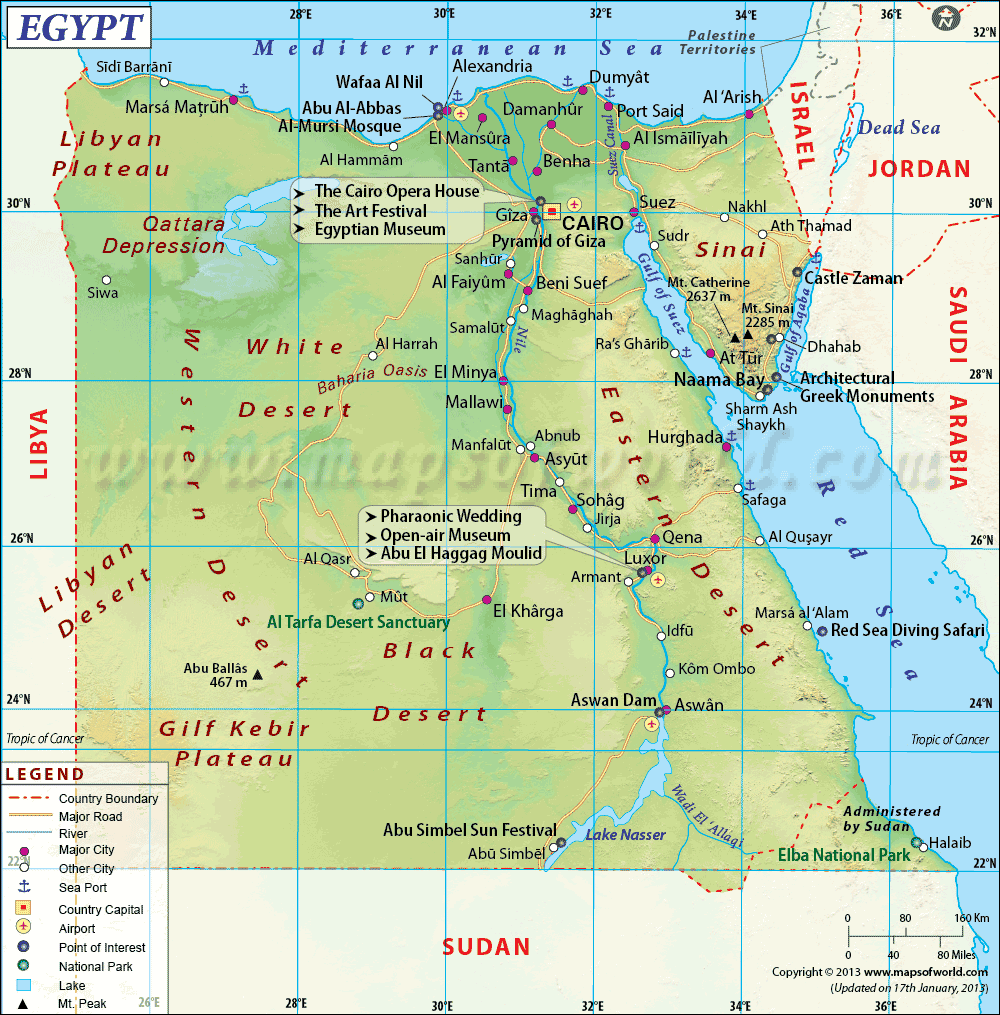IASbaba's Daily Current Affairs Analysis, IASbaba's Daily Current Affairs Sep 2016, International, UPSC
Archives
IASbaba’s Daily Current Affairs – 10th September, 2016
INTERNATIONAL
TOPIC: General Studies 3
- Conservation, environmental pollution and degradation, environmental impact assessment.
Is IUCN still relevant?
In News: IUCN World Conservation Conference (WCC) is in Hawaii over 1-10 September. Some 9,000 delegates from 190 countries, including heads of state, government officials, scientists, indigenous people and business leaders, will share, debate and act on the latest issues in conservation and sustainable development, to define a global path for nature conservation for the future.
- The International Union for Conservation of Nature and Natural Resources(IUCN) is an international organization working in the field of nature conservation and sustainable use of natural resources. It is involved in data gathering and analysis, research, field projects, advocacy, lobbying and education.

- IUCN is the only environmental organization that holds a place in the United Nations General Assembly, giving it an important and unique passport to international discussions on environment and development.
- Its single most important contribution to natural sciences is the development of the Red List—the world’s most comprehensive inventory of the global conservation status of biological species.
- WCC this year goes through an exhaustive process like UNFCCC (United Nations Framework Convention on Climate Change) for a number of motions that all member countries must vote on, the question is: will the countries be penalized if they don’t follow what they commit to?
- For instance, if a member country says yes to a motion on “respect the rights of indigenous people in biodiversity-rich areas” but at the same time allows a thermal power plant to come up on the same piece of land, what can this international body do?
- In the era of globalization and faster development, most emerging economies of the world that are incidentally also rich in biodiversity are facing this dilemma: How to modernize while keeping habitats intact for species.
Critique of the IUCN:
- IUCN may present itself as a knowledge-based body but its beliefs of cause and effect have not been adequately challenged.
- IUCN’s history is one of adding new goals without addressing their coherence with existing ends.
- The IUCN goal, for instance, of advocating protected areas without examining if protected areas actually help in biodiversity protection.
- For all its grand history, is IUCN, still relevant in a globalizing world?
Way Ahead:
- IUCN has to reinvent itself and move away from its emphasis on fences and fines.
- It must recognize the economic forces, the models of “dirty growth” that are threatening biodiversity hotspots around the world. These are the forces this grand body of conservation must take on.
- There are individual sessions by scientists presenting papers on threatened species and effects of mining and other activities on their habitats, which should make their way into mainstream policies of member countries.
- In India, for instance, IUCN should be coming out with white papers on species at risk because of the rapid scale of development that is ripping our habitats apart.
Connecting the dots:
- How far IUCN, as an international body, helped many countries to prepare national conservation strategies, identify areas rich in biodiversity for protection and influenced policymakers?
INTERNATIONAL
TOPIC: General Studies 2
- India and its neighbourhood – relations
- Bilateral, regional and global groupings and agreements involving India and/or affecting India’s interests, Indian diaspora
- Important international institutions, agencies and fora- their structure, mandate
India-Egypt relations
In September 2016, Egyptian President Abdel-Fattah Al-Sisi made a maiden bilateral visit to India. However, this is Egyptian President’s second visit to India in a year (earlier he visited India on account of India-Africa Forum Summit 2015).
This article highlights expanding economic, political and cultural aspects of the bilateral ties between two nations who are facing similar problems of terrorism and radicalisation.

http://www.mapsofworld.com/egypt/maps/egypt-map.gif
Historical
- India and Egypt, two of the world’s oldest civilizations, have enjoyed a history of close contact from ancient times where Ashoka’s edicts refer to his relations with Egypt under Ptolemy-II.
- In modern times, Mahatma Gandhi and Saad Zaghloul shared common goals on the independence of their countries.
Political
- India’s PM Jawaharlal Nehru had a special bond with Egypt President Gamal Abdel Nasser. It captured the political essence of India’s regional policy — bilateral partnership, Arab solidarity and the construction of the non-aligned movement.
- Nehru’s support for Nasser on the nationalisation of the Suez Canal, which is central to Egypt’s national identity and economy, was critical in consolidating the partnership. India also contributed to the construction of the Aswan Dam on the Nile and explored joint defence projects like the building of a jet engine and a fighter aircraft.
- After Nehru and Nasser, India’s bilateral relations with Egypt steadily declined as India became increasingly defensive in the Middle East owing to various internal (India’s inward economic orientation, an ideological foreign policy) and external factors (impact of cold war, Egypt’s shifting international relations and the rise of Islamist identity in the region).
Economic
- Egypt has traditionally been one of India’s most important trading partners, and currently India is the second largest destination for Egypt’s exports. The bilateral trade is $3 billion which is targeted at $8 billion in the near future.
- However, India is yet to tap into sectors like textiles, apparel machinery, automotive components, chemicals and consumer goods.
- Manufacturing offers some great prospects where positioning India as a manufacturing and R&D hub under the ‘Make in India’ initiative can be tapped into. A manufacturing base in Egypt with its geo-strategic location will allow Indian industries to access markets in Europe, Africa and West Asia.
- India’s experience in developing economic corridors, metro projects, housing and urban development would be valuable to Indian players interested in participating at the Suez Canal Economic Zone and other similar projects.
- Currently, Indian participation in the Suez Canal Economic Zone, particularly in sectors such as petro-chemicals, energy, agriculture, healthcare, education, skills and IT is significant.
- India could also engage with Egypt as a top priority source of fertilizers like urea, and make it an important partner in attaining food security.
Security
- India and Egypt have decided to significantly step up their defence and security cooperation to effectively deal with twin challenges of terrorism and radicalisation.
- Both countries have decided to have greater information and operational exchanges to combat terrorism, besides ramping up defence cooperation.
- MoU on Maritime Transport between India and Egypt was signed which will not only intensify maritime commerce but also transit of naval vessels.
- Both countries have sought a comprehensive and just solution to the Palestinian refugees’ cause in accordance with resolution 194 of the UN General Assembly and the Arab Peace Initiative, in a way that preserves security, stability and peace of all the countries in the region.
- India and Egypt have also resolved to work together at UN on concluding the Comprehensive Convention on International Terrorism.
Information Technology
- The Digital India Programme could be useful in Egypt’s development needs such as e-government solutions, new banking platforms, information management and low cost IT parks among others.
- There are also emerging areas such as solar energy where India and Egypt come across as natural partners since the two countries already have MoU on Renewable Energy Cooperation.
- The ‘Startup India’ movement to boost entrepreneurship at the grassroot levels paves the way for collaboration between India and Egypt. Educators and capacity building institutions from both sides could collaborate to find mechanisms to foster entrepreneurship and instil competitiveness.
Cultural
- India and Egypt look forward to more cultural and academic exchanges to promote closer understanding and linkages, especially among the youth.
- The ‘India by the Nile’ (IBN) annual cultural festival has emerged as the largest foreign festival in Egypt.
- Yoga has gained popularity in Egypt. There is also a growing interest in traditional medicine.
Conclusion
- It is an unprecedented political and diplomatic engagement with a volatile Middle East that is so vital to India’s security and prosperity.
- India’s approach to the region in the past was defined by political diffidence, however, pragmatism is the need of the hour.
- India and Egypt enjoy strong, traditional and historical ties that have contributed to peace and development in their respective regions and beyond. Prime Minister’s acknowledgement of the crucial role of Egypt in establishing peace and stability in the region is the key to advance the bilateral relation.
Connecting the dots:
- A stronger India-Egypt ties will result into stronger regional presence of both countries. Evaluate
- India is widening its foreign policy at an unprecedented pace and unexplored areas. Discuss.
- Go through the Egypt’s map to identify neighbours, surrounding water bodies, physical features etc.
Related articles:
The Big Picture – India-Africa Ties: Where are they Heading?
MUST READ
Dark clouds over the PDS
Effective, but not equitable
Sustainable real estate: Supply gap, awareness vacuum persist
ASEAN: India emphasised on peaceful resolution of South China Sea dispute
Bijli, sadak, paani and bustard
Why business is all about building trust













